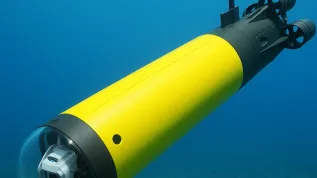
The Sejm passed the Law on Higher Education and Science (Law 2.0) with amendments and the introductory provisions. This comprehensive reform of higher education will result in big changes in the functioning of universities, their financing, and scientific careers.
More than 80 governmental amendments were passed for the two bills: the Law on Higher Education and Science and the Provisions introducing the Law on Higher Education and Science. The Sejm also passed one amendment proposed by the Civic Platform (PO). It provides for additional funding opportunities for non-public universities from budgetary funds (for example, it will be possible to finance their investments related to scientific activities). A spokeswoman for the science ministry Katarzyna Zawada told PAP that the amendment was passed by the ruling coalition on the request of Deputy Prime Minister, Minister of Science and Higher Education Jarosław Gowin.
233 deputies voted in favour of the Law 2.0 with amendments, 195 were against and 1 abstained. 236 deputies voted in favour of the provisions introducing the Law 2.0, 195 were against and 2 abstained.
Deputy Minister of Science and Higher Education Piotr Müller spoke before the vote and addressed the allegations against the Law 2.0, formulated by opposition MPs. He reminded that the law had the support of the Student Parliament of the Republic of Poland, the National Representation of Doctoral Students, numerous student -governments, state higher vocational schools and universities from the Zielona Góra Accord (a network of small and medium regional universities). He added that in the last two years thousands of representatives of the academic community participated in the consultations of the bill.
"The law increases the autonomy of universities by increasing their internal organizational freedom. The academic community will decide how universities works, not the law" - Müller emphasised, referring to the accusation that universities would lose their autonomy.
He stated that the project was discussed with the academic community and it would bring development not only to large, but also to regional universities "by ensuring the diversity of the Polish academic community". He reminded that the law would introduce the regional initiative of excellence that would provide a separate funding stream for research in the "islands of excellence", smaller universities.
Referring to the evaluation of universities, he stated that the provisions contained in the Law were a departure from the "scoring disease mechanisms inherited from the previous law". He added that now researchers would present 4 of their most important scientific achievements. "This will allow scientists to focus on real research and realize their ambitions instead of collecting points" - said Deputy Minister of Science.
Müller said that the law also addressed the postulates of trade unions, because it would stabilize employment at universities.
He called the creation of doctoral colleges a revolutionary change "in the creation of future science elites". "Until now, in most cases, doctoral students are barely making ends meet. (...) The law for the first time introduces the mechanism of a universal scholarship system" - he pointed out.
"We introduce the obligation to set all fees before the start of studies and prohibit increasing them, because we think that it is fair to students. (...) It was a students` demand that we should not cheat later by raising fees" - reminded Müller and mentioned that it was an important issue for the Parliament of Students of the Republic of Poland
The Minister also emphasised that according to the provisions of the new law there would be more opportunities to create interdisciplinary studies combining the potentials of various faculties.
Deputy Minister of Science also reminded about salary increases for academic teachers, which would start from January 2019. "On average, minimum wages in individual academic groups will increase by PLN 800 gross" - he added.
The government amendments adopted by the Sejm include a package of amendments related to the functioning of a new body - the university council. The amendments limit the expected functions of these councils. According to one of the amendments, as far as the university council is concerned, people from outside the given institution "constitute at least 50% of its composition". Therefore, the number of university council members from the outside can be the same as the number of members from the institution. According to the earlier version of the bill, people from outside the university would be the majority. This solution was controversial in part of the community, so the Ministry of Science agreed to change the provision.
According to the initial version of the bill, the university council would adopt the university`s strategy and approve the report on its implementation. One of the adopted amendments assumes that the council will only give its opinion on the strategy and its implementation report. In addition, the university council - in accordance with the adopted amendment - will not have the exclusive right to propose rector candidates. Universities will also be allowed to name other entities in the statute, that will have right to propose candidates.
Another amendment concerns the issue of the costs of obtaining income by academic teachers. The provision clarifies interpretative ambiguities in favour of academic teachers. "Performing the duties of an academic teacher is a creative activity of an individual nature" - the amendment reads. Tax offices would use a different interpretation regarding costs of obtaining income in the absence of clear guidelines, which resulted in less money in researchers` pockets.
Another government amendment removes the fast habilitation path planned earlier in the bill, for people who have completed a prestigious research grant. As a result of this amendment, habilitation will not be awarded for obtaining an ERC (European Research Council) grant - as initially planned.
In addition, 92 minority motions were submitted for both bills. One of them, identical to a government amendment, was accepted. The remaining motions were rejected.
The bill will now move to the Senate.
The new law, also referred to as the Constitution for Science, will replace the four existing ones: the Law on Higher Education, the Law on the Principles of Financing Science, the Law on Academic Degrees and Title, as well as the Law on Student Loans. The new law is expected to enter into force on October 1, 2018.
The bill makes many of the university`s options (including offering studies with a general academic profile and awarding academic degrees) dependent on the scientific categories that the university receives in its disciplines. In addition, after the reform, the right to offer studies and award academic degrees will be assigned to HEIs rather than to their organizational units. A new division of disciplines is planned, modelled on the division proposed by the OECD.
According to the bill, the governing bodies of a public university, in addition to the rector and senate, will also include a new body - the university council, chosen by the community of a given university. The rector will gain more power to shape the university`s policy, at the expense of collegial bodies, for example faculty boards.
The entry of the law into force will also introduce two paths to obtaining a doctorate: doctoral colleges and the so-called extramural path. In doctoral colleges, each PhD student will receive a scholarship. These schools will not have an extramural form. However, doctoral students will be required to meet higher standards when it comes to the quality of their research and publications. A doctoral college will have to have at least two disciplines.
The draft Constitution for Science emphasizes that scientists should publish in scientific journals included in international databases, which will help scientists from around the world find this content. Such publications will be scored higher.
Although the bill does not remove habilitation, obtaining this degree will have less importance. Habilitation will no longer be required, for example, to work as a university professor. The current time limit of 8 years for completing habilitation after doctorate will also disappear from the regulations.
The model of financing higher education and science will also change. Universities will have more flexibility with regard to allocating their funds. Money will be awarded to universities and not - as previously - to their organizational units (for example faculties).
Under the new law, universities will also be allowed to form federations.
In addition, the Ministry of Science and Higher Education proposes three major programs - initiatives of excellence. One of the programs is addressed to the best academic and research universities, another to regional academic universities, and the third program to public vocational universities. In these programs, the best universities from each of these three groups will have the opportunity to obtain additional money.
Law 2.0 will change the university evaluation procedures. Under the bill in its original form, the new rules would apply to the evaluation conducted in 2017-2020. According to one of the approved amendments to the transitional provisions, publications in scientific journals from 2017 and 2018 will be scored according to the previous ministerial score tables. The scoring will change for the papers published in the following years.
The process of working on the Constitution for Science was unusual. At the end of May 2016, the Ministry of Science and Higher Education organized a competition. The three winning research teams prepared draft assumptions of the reform. These documents became the starting point for discussion in the academic community.
At the same time, the Ministry of Science and Higher Education appointed the council of the National Congress of Science, in which experts discussed the shape of the reform. The Congress council organized a series of conferences throughout Poland. Representatives of science and universities had the opportunity to discuss how their sector should change. The first version of the bill was presented in September 2017, during the National Congress of Science in Kraków. Many changes were made to the bill as a result of several months of consultations.
The bill also triggered discussions in the ruling camp. Important PiS politicians voiced their objections to Deputy Prime Minister Gowin`s reform, including the deputy speaker of the Sejm and the PiS parliamentary club leader Ryszard Terlecki. In connection with the comments from the coalition, as well as the academic community, in the course of the parliamentary work the Ministry of Science recommended the adoption of numerous amendments. After the first reading, the Sejm Committee on Education, Science and Youth adopted 160 amendments. Among other things, the competences of the university council were reduced (it would not elect a rector). Rector will be elected by the college of electors, and not - as the original bill assumed - the university council. In that batch of amendments, universities that would receive a B+ category in a given field were also given the right to open courses of study without the minister`s approval.
In June, protests were organized against various provisions of the Law 2.0 in several places in Poland. Occupational strikes and protest actions were organized at the University of Warsaw, the Jagiellonian University, the University of Gdańsk, the University of Wrocław and the AGH. Parts of the communities at the University of Lodz, Opole, Rzeszów and Białystok, as well as NSZZ Solidarność at several universities also opposed the bill. The protests were organized by the Academic Protest Committee (a grassroots movement).
Student governments and university authorities distanced themselves from the protests. The bill had the continued support of the institutions representing the academic community by law: the Students` Parliament of the Republic of Poland, the National Representation of Doctoral Students, the Conference of Rectors of Public Vocational Schools. The network of small and medium-sized academic institutions associating 25 higher education institutions also maintained its support for the bill.
PAP - Science in Poland, Ludwika Tomala
lt/ szz/ agt/ kap/
tr. RL
law 2.0













